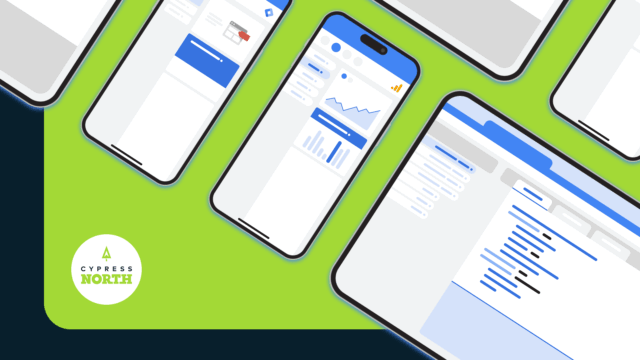Is Your Digital Marketing Strategy Putting You at Risk? Understanding CCPA’s New Legal Precedent

Expanding Private Right of Action
A recent class action lawsuit filed against Capital One could have major implications for digital marketers, especially those relying on tracking technologies like Google Ads, Google Analytics, and Meta Ads pixels.
This is another reminder that privacy expectations are evolving, and that marketing teams need to evolve with them.
What Happened With Capital One?
The lawsuit alleges that Capital One shared users’ personal information with third parties (like Google and Meta) without proper user consent. This wasn’t the result of a traditional data breach, however, but from common tracking technologies embedded on the company’s website.
Capital One attempted to dismiss the case, arguing that no "breach" had occurred. But the court disagreed and allowed the lawsuit to proceed, potentially expanding the California Consumer Privacy Act’s (CCPA) private right of action to include unauthorized data sharing, even when no traditional breach has taken place.
Arguments Against
Some in the marketing community view this litigation and broader enforcement of the CCPA and General Data Protection Regulation (GDPR) as overreaching.
Opponents of the lawsuit argue that:
- Tracking technologies are standard across the digital marketing industry. Most websites use these tools to measure performance and optimize user experiences.
- There are few viable alternatives to pixel-based tracking for attribution, especially for small businesses with limited resources.
- Most businesses act in good faith, simply trying to reach the right audiences more efficiently, not to exploit user data.
- Regulatory enforcement may disproportionately affect small businesses rather than the tech giants that created the underlying tools.
Arguments For
On the other hand, privacy advocates see the ruling as an overdue shift in how user data is protected. They argue that:
- Tech giants like Meta and Google have repeatedly misused user data, including violations of laws like HIPAA. For example, Meta has been investigated for using sensitive health data for hyper-targeted and, at times, predatory marketing practices.
- The issue isn’t necessarily data use, it’s consent. In almost any other context, giving consent is the baseline. But digital marketing often treats this as optional.
- As digital identities increasingly mirror real-world lives, people are understandably uncomfortable with having their browsing behavior, preferences, and health data bought and sold without their knowledge.
This lawsuit reinforces a broader principle: Individuals deserve transparency and control over their digital lives.
Whatever side you fall into, privacy compliance is the not-so-new norm. And digital marketers need to ensure they’re compliant with their organization's legal requirements.
Why This Matters For Digital Marketers
If this interpretation of the CCPA stands, it means companies could potentially be liable for what are widely considered standard tracking practices if they involve sharing personal information without proper consent, even if no security breach occurs.
And the cost? The CCPA allows for statutory damages of $100 to $750 per user, per violation. With even 100 users, penalties could exceed $10,000.
Intersection Between Marketers and Lawyers
It’s important to recognize that most marketers are not lawyers.
The job of a digital marketer is to execute marketing strategies, not write privacy policies or interpret laws. However, digital marketers are responsible for ensuring their work aligns with an organization’s legal obligations.
You should be especially cautious when working with:
- HubSpot or any platform managing first-party customer data.
- Enhanced conversions in Google Ads or other ad platforms.
- User-provided data in GA4 or other analytics platforms.
- Any tracking pixel or technology that shares user data with third parties.
For example, if you know you have to be compliant with the CCPA or GDPR, you may want to think twice about implementing enhanced conversions, even if it improves campaign performance. Doing so could create legal risks for you.
How to Stay Compliant
To align marketing practices with privacy laws like the CCPA and GDPR, businesses should:
- Implement proper data security measures to reduce the risk of unauthorized disclosures.
- Audit all digital properties and tracking technologies to understand what data is collected, how it's shared, and with whom.
- Disclose all third-party data selling or sharing in privacy policies.
- Obtain user consent before tracking, selling, or sharing personal information. This could be through cookie banners and/or checkboxes on forms.
- Provide data access and deletion options so users can review or remove their personal information (HubSpot records, ecommerce history, etc.)
Final Thoughts
Whether you see the Capital One lawsuit as an overreach or a necessary step toward stronger data protection, one thing is clear: privacy compliance is now part of the digital marketing landscape.
Digital marketers don’t need to become legal experts, but they do need to collaborate closely with legal teams to make sure marketing strategies respect the privacy rights of the people we’re trying to reach.
Looking For A Partner Who Understands Privacy Compliance?
At Cypress North, we specialize in performance marketing strategies that drive results while staying in strict alignment with your organization's legal and privacy requirements.
Our services include:
- Compliant tracking and measurement setups across GA4, Google Ads, Meta, and HubSpot.
- Consent-aware analytics and conversion tracking using Consent Management Platforms like OneTrust.
- Direct collaboration with legal and IT teams to integrate our marketing strategies with your organization’s privacy compliance framework.
Let’s talk about how we can help you build high-performance, privacy-compliant digital advertising campaigns.
Meet the Author

Jack Novorr
Jack is our Head of Data. He joined Cypress North in July 2022 and works out of our Buffalo office.
Jack has Google Analytics 4 and Google Tag Manager certifications. He's familiar with a wide range of data analytics, reporting, and visualization tools, including Looker Studio, Google BigQuery, Tableau, and Power BI.
Since joining us, Jack has grown into a leader for our data team. He works closely with our clients to help them manage, visualize, and report on their data. He also played a key role in helping our agency and our clients with the shift from Universal Google Analytics to Google Analytics 4 in 2023.
Originally from Kansas, Jack moved to Buffalo to join our team shortly after graduating from the University of Kansas with a Bachelor of Science in business analytics. While pursuing his degree, Jack gained experience writing queries for large databases, data manipulation, database management, data visualization, and general coding.
Outside of work, Jack has a cat he enjoys spending time with.




![Data - Blog - Google Collab [Background]](https://cypressnorth.com/wp-content/uploads/2024/03/Data-Blog-Google-Collab-Background-640x360.jpg)














